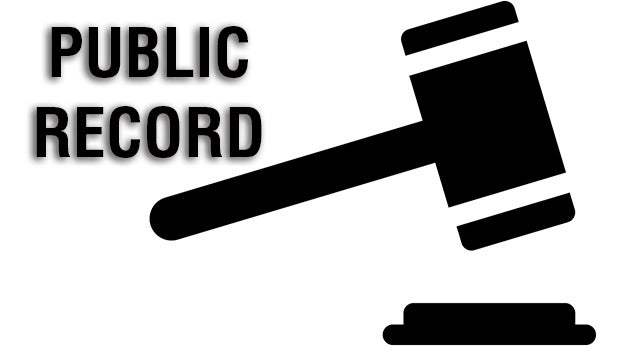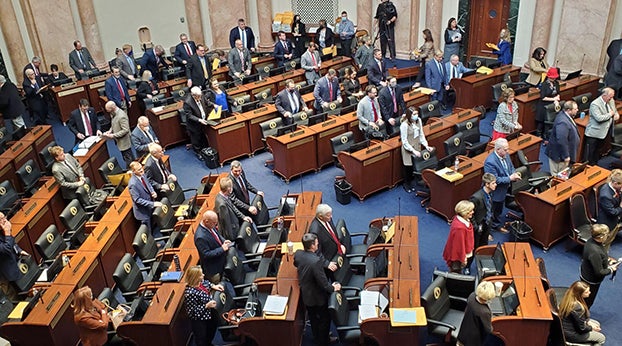Zoning amendment would clarify legality of Airbnbs in Boyle
Published 7:37 pm Thursday, June 13, 2019
Where are Airbnb rentals allowed in Danville and Boyle County? According to Planning and Zoning Director Steve Hunter, the answer right now is almost nowhere — and certainly not in the residential zones where many short-term rental properties have set up shop in the last few years.
Where would short-term rentals be allowed under a proposed zoning ordinance amendment being considered this month by the P&Z Commission? In many more places — but notably not in single-family residential zones.
The legality of short-term rentals — most commonly thought of as rental properties available from the online website Airbnb — is questionable at best based on the current zoning ordinance for Boyle County, Hunter has warned previously.
“It’s pretty easy from my point of view: Airbnbs are pretty much illegal under our zoning — there’s not even an ‘if’ or an ‘and,'” Hunter said in April.
Hunter said at the time there’s one “caveat” in current zoning ordinances that would allow a grandfathered bed and breakfast business to operate as an Airbnb, and there could be a gray area in agriculturally zoned areas. But in residential zones where short-term rentals are generally located, “there’s no misunderstanding — you can’t do overnight accommodations,” Hunter said.
But Hunter has stopped short of saying P&Z should shut down the 40 or so existing short-term rental properties in Boyle County. Neighbors of some rental properties complain regularly about loud parties and problematic guests, but many of the rental-property owners are running quiet operations, have obtained business licenses and are paying their local room taxes to the Convention and Visitors Bureau.
“I think it’s gray enough now that we’re just going to have to move slow on it,” Hunter said in April.
This week, Hunter distributed a proposed zoning ordinance amendment to P&Z commissioners and shared a copy with The Advocate-Messenger. Among the many changes the draft document would make are new rules for where short-term rentals can operate and what standards they have to follow.
Short-term rentals and bed and breakfast businesses would be permitted in agricultural, multi-family residential and most business zones, as long as they followed specific use standards. They would be allowed in rural residential and two-family residential zones with a conditional-use permit. They would be allowed without restriction in Danville’s historic overlay district.
Short-term rentals and B&Bs would not be allowed at all in single-family, office, or any industrial zones.
A change-of-use zoning permit would be required before any short-term rental or B&B could begin operating. Rooms would have to be “designed and intended to accommodate no more than two persons” and each room could be rented for no longer than 30 days.
“The use shall not adversely affect the uses permitted in the area and in the immediate neighborhood by excessive traffic generation, noise and light,” according to the use standards in the draft. “One parking space shall be required for each guest room available for rent. All off-street parking areas shall be completely screened with landscaping.”
They would all be limited to a maximum of five to eight rooms for rent, depending on the type of short-term rental or B&B business.
If a short-term rental wants a conditional-use permit in order to open in a rural residential or two-family residential zone, it will have to get one from the Board of Adjustments, which would “make a finding that the number of rooms granted shall not have adverse effect on surrounding properties” and “take into consideration the number of short-term rental facilities, if any, within the general neighborhood of the property.”
Short-term rentals would be required to get a conditional-use permit as well for any “additional commercial uses such as meetings, seminars, tea/garden parties, weddings, receptions or concerts.”
Lisa Bowman, administrative assistant for P&Z, said some existing short-term rentals may be grandfathered in — exempted from the new rules — “if they had been operating under a legitimate conditional-use permit in a district in which it was permitted by the old ordinances.”
“The zoning districts will also be changing and this will likely cause the most effect to rental properties, short- or long-term, as neither will be permitted in any single-family zoned district,” Bowman said.
The P&Z Commission will hold a public hearing on the proposed zoning ordinance amendments at its regular June meeting, 9 a.m. June 26 at Danville City Hall.







